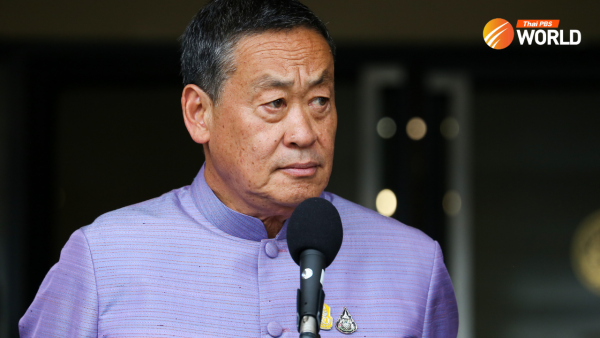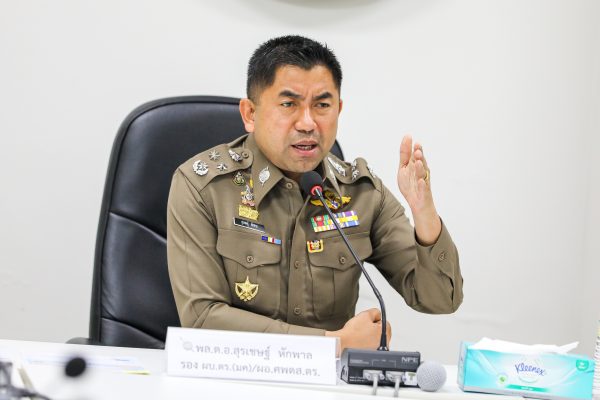Move Forward wants political, not legal, impact from its amnesty push

On the surface, it’s a blatant show of apparently-backpedaling defiance at most. Beneath it, the opposition Move Forward Party wants its amnesty bill to look that way so that the ruling Pheu Thai Party could pay a huge price.
Talk about aiming high but shooting low. Apart from putting Pheu Thai in an awkward situation, Move Forward can also hope to keep the conservatives highly uncomfortable.
Move Forward does not expect the whole content to sail through Parliament, an arena the party knows too well it can never win at currently. It wants to make a statement outside it, at the electoral expense of Pheu Thai the next time the country goes to the polls.
Surrounded with reluctant allies without whom the party would have had to see Move Forward running the administrative show, Pheu Thai will not go anywhere near Article 112.
The ruling party has been so polite about the amnesty bill that the camp’s tough conditions escaped most people’s attention.
Late last month, public statements from senior Pheu Thai members came out to unmistakably underline the party’s unwillingness to deal with any proposed constitutional or legal change that could be “divisive”.
Public Health Minister and ex-Pheu Thai leader Cholanan Srikaew and Digital Economy and Society Minister Prasert Jantararuangtong both said the same thing: Pheu Thai would look into Move Forward’s amnesty bill but the government’s “priorities” are the bread and butter issue and the elusive reconciliation.
So, it will be Pheu Thai’s digital wallet and “soft power” promotion against Move Forward’s amnesty drive. Pheu Thai will be hoping its main programmes would bring about positive economic changes big enough for voters to forget ideology in the next election. Move Forward, of course, wants the opposite to happen.
The bill is not just Move Forward’s trump card. It’s the opposition party’s only meaningful card.
Thaksin Shinawatra’s controversial living conditions ever since he returned to Thailand stopped being powerful ammunition once Thanathorn Juangroongruangkit admitted to meeting him overseas during the formation of the post-election government.
Attacking digital wallet could beg the question why Move Forward was so silent during the election campaign. A gender equality push could boomerang against the party itself for obvious reasons.
This leaves the amnesty bill. The party played a big role in removing some taboos, and while that spawned doubters or even haters, what it did was a
political signature more aggressive than that of Pheu Thai. Move Forward must be wishing that the situation outside Parliament would not change and the bill would help guarantee it.
Chaithawat Tulathon, the Move Forward leader, has sent out a strong signal about how belligerent the party would be in pushing its ideological agenda.
“Amnesty is the only possible way to remove burning wood out of the fire. Ending legal warfare is the first step of building sustainable justice and reconciliation,” he said.
Analysts see potentially-contentious points in Move Forward’s amnesty bill, as it would prohibit certain groups from getting the benefits while, at the same time, qualify certain people deemed wrongdoers by certain people for absolution.
For example, state officials, whether they were those giving or receiving orders, would be exempted from amnesty if they were involved in using excessive force while handling political protests. Reckless action ending or threatening life might be forgiven.
People on both sides as well as innocent neutrals have died because of political confrontation, so the above can be subject to intense and divisive debate.
Corruption cases would also be barred from amnesty. This would greatly divide opinions because Thailand’s political polarity has a lot to do with what one side considers blatant graft and the other calls persecution.
Political bans affecting Move Forward and its past life known as Future Forward could get a lot of scrutiny.
Highly curious is the term used by Chaithawat, “legal warfare”. Most people will have the same interpretation, which is the weaponising of laws and using them against political opponents.
This would rattle several existing laws and lead to a question of whether amnesty is truly possible without major legislative changes.
Bad news is that Move Forward’s amnesty bill will not get a friendly Parliament under normal political circumstances. Worse news is that present political circumstances are far from normal. But good news is that legal impact is not what Move Forward really wants, and that being on the “losing side” could be better politically for the biggest party.
Tulsathit Taptim






